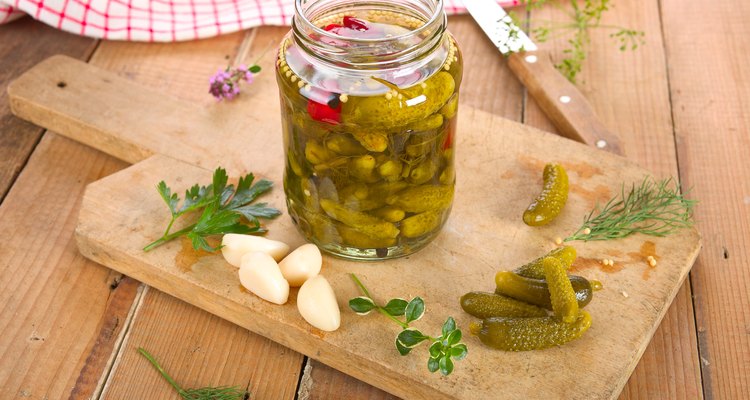
Atide/iStock/Getty Images
Buying food in bulk can help save money and reduce the amount of packaging that gets tossed in landfills. The only downside of making bulk purchases of dry goods is figuring out how to store the food until you need it. Mason jars allow you to portion out your dried food that can then be stored in the pantry. To ensure quality and stay safe, you'll need to pack and store the food properly and be alert to any signs of spoilage.
Choosing the Foods
Because of the chance of rot, not all foods can be stored on the shelf long term. The best candidates for long-term storage are foods with low moisture content, including dried goods such as dried fruits, flours, grains, cereals, jerky, milk powder and dried beans.
Preparing the Jars
Mason jars come with screw top lids for the typically clear glass jars. Even new jars must be cleaned and thoroughly dried before you store your food in them. A slight amount of moisture or a tiny spore of mold can ruin dried food. Wash the jars and lids in hot, soapy water and dry them completely. You can speed up the drying process and sanitize the jars further by wiping the inside down with food grade alcohol. The alcohol dries rapidly and destroys bacteria and molds.
Sealing the Deal
Once your jars are clean and dry, get your food ready for packing. Place the lids in a pot of hot water to soften the sealing ring. Then, fill your jars, leaving about 1/2 inch of space at the top of the jar. To avoid waste, fill the jars only with the amount of food you can use within a few days of opening the jar. If you don't have a vacuum sealer, you can place an oxygen absorber packet in the jar to help preserve the flavor of the food and to prevent molds from growing. To ensure your lid seals properly, wipe the rim of the jar to clear away any food particles. Using sterilized tongs, remove lids one at a time from the hot water and dry them thoroughly with a clean towel. Press the lid onto the jar's opening and then screw a lid ring down tightly. Once the lid sucks down, the jar is sealed and ready for storage. If you have a vacuum sealer, just after placing the lid on the jar, use the sealer to remove the air from the jar.
Checking the Shelves
To keep sunlight from ruining the food in your mason jars, the jars need to be stored in a dark pantry. Because high temperatures reduce food storage times by up to one-half, aim to keep your pantry at a steady 60 degrees Fahrenheit, if possible. As you place items on the shelf, label and date the jars. Although more stable than fresh food, dried foods will not keep forever. According to the National Center for Home Food Preservation, most dried foods stored at 60 F will keep for four to 12 months, although the U.S. Department of Agriculture Food Safety and Inspection Service states rices and grains can store for up to two years. To determine if a food is still good, take a sniff. Spoiled foods will have a rancid or musty smell. Before using, check the food for any insects. If you cook the food and notice an off taste, assume the food has gone bad and throw it out.
Related Articles

How to Vacuum Seal Jars

How to Store Dehydrated Foods

Problems With Black on Canning Jar Rim
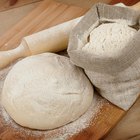
How to Store Flours & Grains Without ...

How to Prevent Moths in Long-Term ...

Does Baking Soda Need to Be ...
How Long Are Canned Meat & Vegetables ...
How Long Can Food Stored in Canning ...
Maximum Storage Temperature of Canned ...
How to Heat Process Mason Jars to Seal

Why Do Canning Jars Pop While Cooling?
What Can Be Put in a Mylar Bag for Food ...

How to Store Clothes in Cardboard Boxes

How to Can With Half-Pint Jars
How to Store Dry Beans & Rice for ...
Longest Lasting Supermarket Foods for ...

Rival Seal-a-Meal Vacuum Food Sealer ...
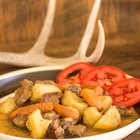
How to Can Venison Meat
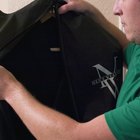
How to Store Clothes in Storage
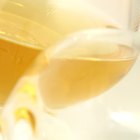
How to Store Cognac
References
Resources
Writer Bio
Based in Portland, Ore., Tammie Painter has been writing garden, fitness, science and travel articles since 2008. Her articles have appeared in magazines such as "Herb Companion" and "Northwest Travel" and she is the author of six books. Painter earned her Bachelor of Science in biology from Portland State University.
Photo Credits
Atide/iStock/Getty Images